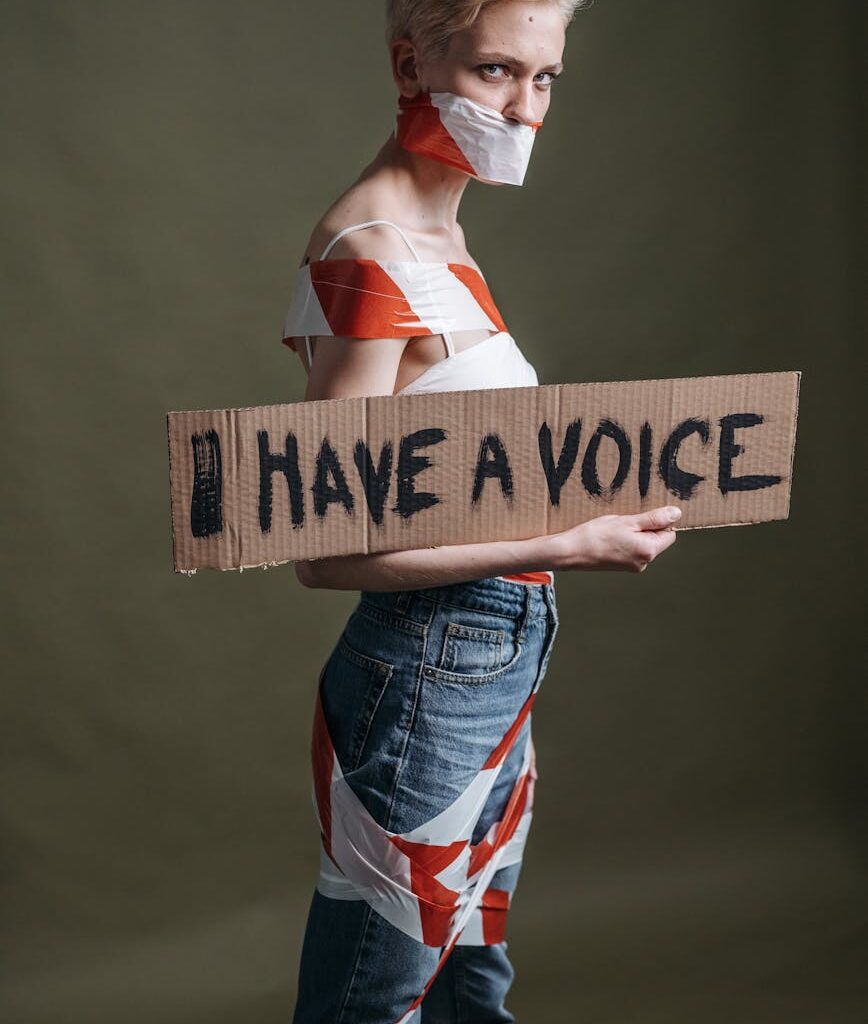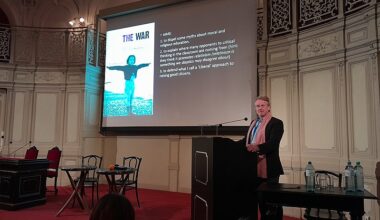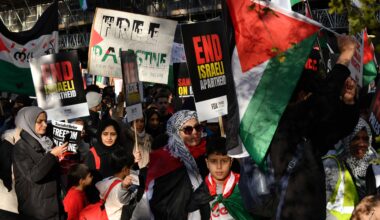There’s a kind of violence that doesn’t wear a uniform, doesn’t raise its voice, and doesn’t need to spill blood to be effective. It speaks in well-published books, sits on academic panels, tweets in solidarity, and signs petitions. It insists on cultural understanding. It warns against Western arrogance. It tells you that criticizing a regime might play into the hands of imperialism. It smiles at you, calls you comrade, and tells you to be careful. It is what Pierre Bourdieu in another context once called ‘the racism of the intelligentsia’.
This racism doesn’t announce itself. It doesn’t use slurs or burn flags. It works through exclusion masked as care, silencing disguised as respect. It marks out who has the right to speak, and what kind of pain counts as political. It reproduces the very hierarchies it claims to oppose. And today, it finds a strange ally in what might be called inverted Orientalism—the reflexive defense of non-Western authoritarianism as if all critique were just another colonial script.
Edward Said gave us the vocabulary to understand how imperial powers represented the East: as exotic, irrational, backward, and passive. But what happens when these same representations are flipped, not to liberate, but to excuse? When brutal regimes cloak themselves in ‘cultural authenticity’ and their defenders in the West recycle that claim—sometimes cynically, sometimes sincerely—as if repression were a misunderstood local custom?
This is not a new problem. But the convergence of Bourdieu’s and Said’s work helps us name it more precisely. On one hand, we have the symbolic violence of intellectual gatekeeping, where certain voices—usually elite, often Western—decide which suffering is legitimate and which resistance is ‘too Western’, ‘too liberal’, or ‘not authentic enough’. On the other, we have the remnants of Orientalism living on in reverse: an unwillingness to confront tyranny when it wears traditional clothes or speaks the language of anti-imperialism.
The Afterlife of Orientalism
Edward Said’s classic 1978 work Orientalism was not just a book about colonial history—it was a diagnosis of how power shapes knowledge. He showed how the West invented ‘the Orient’ as a category, not to understand, but to dominate. Representations of the East as sensual, despotic, childlike, or dangerous were never innocent—they justified conquest, exploitation, and military occupation. Said exposed the production of this knowledge as political, rooted in empire.
But what happens when this critique becomes untouchable dogma? When any attempt to describe political repression in the Middle East, North Africa, or South Asia is immediately accused of repeating Orientalist tropes? When all criticism is dismissed as Islamophobia, or cultural arrogance, or a Western gaze?
We see it today: a student is jailed in Tehran or Cairo, and someone on the left shrugs—‘But aren’t Western prisons worse?’ A woman denounces state violence in her own country, and an academic panel in Europe nods gravely—‘But we must avoid playing into imperial narratives.’ The regime in question claims to be defending national dignity, Islamic identity, or postcolonial sovereignty. And many listen.
Said warned against this. He was clear that Orientalism is not a shield against all criticism. He never excused despotism. His anger was not only directed at the colonizer, but also at those who used anti-colonial rhetoric to shield their own power. He believed that the intellectual’s task was to speak truth to power—all power.
Yet today, his work is sometimes used to do the opposite: to silence local voices fighting their own regimes. To suggest that those who cry out against oppression from within the so-called Global South are somehow infected with Western ideology. It’s a betrayal of Said’s work and a flattening of political struggle.
Iran: When Survival is Misread as Consent
The statistics speak clearly. Iranians are not just turning away from the Islamic regime’s version of religion—they are rejecting its moral, cultural, and political authority altogether. The mosques are emptying, the hijab is losing its symbolic grip, and a new generation is emerging that wants more than to just endure. They want to live, and they want to speak without translating their pain into a vocabulary palatable to Western or diaspora intellectuals.
This is inverted Orientalism: where the regime is portrayed as authentic, and the people who oppose it are cast as puppets of the West—or worse, traitors to their own culture.
And yet, many of those same intellectuals, especially on the Western left, continue to insist that any sharp critique of the Islamic regime risks playing into imperial hands. They deploy Edward Said like a shield, muttering ‘Orientalism’ every time someone raises their voice against arrests, forced veiling, torture, or executions. They see tyranny and call it culture. They see revolt and call it Western mimicry. It is not ignorance—it is the racism of the intelligentsia, operating with a twist: a performance of solidarity that disguises a deep refusal to listen.
This is where Bourdieu and Said meet. Bourdieu showed us how elites define what counts as legitimate knowledge. Said exposed how empire produces false knowledge in order to rule. But what neither could have fully foreseen is this third form: where knowledge cloaked in anti-imperialist jargon becomes a tool to delegitimize resistance. This is inverted Orientalism: where the regime is portrayed as authentic, and the people who oppose it are cast as puppets of the West—or worse, traitors to their own culture.
It is precisely this logic that silences the Iranian women walking unveiled in the streets. It is what renders their defiance invisible to some ‘anti-imperialists’ in the West who still imagine the regime as a bulwark against Zionism or American dominance. But to many inside Iran, those debates are distant. What matters is that they cannot breathe freely, cannot speak without fear, cannot choose their futures without punishment. Their struggle is not about East versus West. It is about the rope tightening around their necks.
Yes, there is a pro-Western opposition to the Islamic regime—groups like the Mujahedin-e Khalq or royalist factions that openly seek U.S. or Israeli backing. Their agendas are often authoritarian, their vision rooted in either cult-like discipline or a return to monarchy. But to conflate them with the broader Iranian opposition is dishonest. The fight for democratic rights in Iran is not theirs alone—it belongs to the women unveiling in the streets, the workers striking in silence, the students jailed for speaking out. Most of these people want neither empire nor theocracy.
Bourdieu would recognize this silencing as a form of symbolic violence. The refusal to acknowledge Iranian resistance as legitimate is not neutral—it is a form of class and cultural exclusion. It is the imposition of an interpretive framework that erases the lived experience of millions in favor of an abstract narrative shaped far from the streets of Tehran.
Said, too, would have bristled at the way his work is used to shield oppressors from criticism. He wrote in defense of the oppressed, not the regimes that claim to speak in their name. He understood that decolonization means not only rejecting Western domination, but also refusing to be ruled by local elites who exploit anti-imperialist rhetoric to consolidate their own power.
When the World Refuses to Listen: Notes on Inverted Orientalism
I’ve spent years reading what the world writes about Iran. Not the regime’s propaganda—that is predictable—but the way Western media, both on the right and the left, respond to the voices that rise up against it. It’s been one of the more painful parts of exile: to see your people resist, to watch them walk unveiled into the jaws of the state, to hear their chants echo through the streets—and then to open the paper or read a headline and realize no one is really listening.
What you find instead is something more slippery than ignorance. I’ve seen well-meaning journalists and academic voices on the left, people who claim to be allies, approach Iran with a kind of caution that borders on contempt. They speak of ‘cultural differences’, of ‘not imposing Western values’, of ‘avoiding Orientalism’. They say it’s complicated. They say it’s not our place to judge. But in the end, their hesitation becomes a form of permission—permission for the regime to go on brutalizing in silence.
I couldn’t help but feel that these thinkers, who prided themselves on opposing all forms of oppression, had quietly decided that some dictatorships are more forgivable than others—so long as they say the right things about America and Israel.
I remember reading an article that praised the hijab as a symbol of empowerment, of identity, of resistance to Western beauty standards. It was published in a progressive outlet, written in the language of inclusion and cultural respect. And I thought of the women I knew who were fined, detained, or beaten for removing that same hijab. I thought of those who still wear it because they have no choice—not because it empowers them, but because the law says they must. It’s strange how quickly coercion becomes culture when viewed from a safe distance.
There were other moments, too. When protests erupted in Iran—real, massive protests led by women and workers and students—I searched leftist websites I used to admire. Some had nothing to say. Others were worse: hinting that these uprisings were the work of the CIA, or that Western media attention itself was suspicious. As if the people had no agency of their own. As if their demands for freedom, dignity, and autonomy were nothing but echoes of empire. I couldn’t help but feel that these thinkers, who prided themselves on opposing all forms of oppression, had quietly decided that some dictatorships are more forgivable than others—so long as they say the right things about America and Israel.
On the right, the dishonesty takes a different form. Conservative media outlets love to point to the Iranian regime’s brutality—its executions, its morality police, its gender apartheid—not to support those fighting against it, but to affirm their own superiority. They wag their fingers at the East, speak of savagery and backwardness, then return to policies that keep migrants in cages or ban the hijab altogether. I’ve heard them say, ‘That’s just how it is over there’, with a shrug that turns resistance into inevitability, suffering into something almost deserved.
In both cases what I’ve come to see is the same refusal. A refusal to hear Iranians speak in their own language of rebellion. A refusal to see them not as symbols, not as victims or puppets or villains, but as political subjects with their own demands, their own struggles, and their own voice.
That refusal has a name. Bourdieu called it the racism of the intelligentsia—the way educated people exclude and silence under the guise of refinement or complexity. Said called it Orientalism—the power to define the East in ways that serve the West. And now, in this new mask, it becomes something else entirely: a kind of anti-Orientalism that still denies the people, that still speaks over them, but now claims to do so in their defense.
It’s not just that they misread us. It’s that they refuse to believe we could be the authors of our own history. That we could rise not because we were manipulated, but because we were suffocating. That we could want both to overthrow our dictators and to reject foreign domination. That the desire for freedom doesn’t belong to the West. It belongs to all of us.
Who Gets to Speak for Us?
This is the part that stays with me, even in quiet moments: the feeling of being spoken about, but never to. Of watching Western intellectuals turn our struggles into symbols, our dead into footnotes. I’ve seen young women in Tehran walk unveiled under the gaze of cameras and soldiers, knowing full well the cost. I’ve seen families in mourning, hiding photographs of their murdered children because to grieve publicly would invite surveillance. These are not metaphors. These are lives.
But when these stories cross borders, they are often filtered through a lens that distrusts them. They are too secular, too emotional, too modern, too Westernized. Or worse—they’re not convenient to anyone’s political agenda. The regime and its defenders are allowed to speak in the name of ‘authenticity’. We, who resist it, are not.
In exile, I’ve met people from Syria, Afghanistan, Egypt, Iraq—people who know this feeling well. People whose revolutions were ignored, whose pain was reinterpreted as Western propaganda. People who have been asked to justify their resistance, to prove that their desire for dignity isn’t a foreign import.
The irony is unbearable: we fled censorship, only to find it disguised as solidarity. We fled ideological conformity, only to face a new kind—one wrapped in slogans, dripping with good intentions, but deaf to the realities we carry.
This is the violence Bourdieu warned us about—not the kind that beats the body, but the kind that erases the voice. And it’s the betrayal Said feared, where anti-imperialism is used to defend new empires wearing different clothes. A religious state, a military junta, a populist strongman—anything but a people rising on their own terms.
There’s a line I keep returning to, something I once heard from a Syrian student during the uprisings in his country: ‘They want us to resist only the enemies they approve of.’
That sentence lives in me. It sums up everything. Because what we’re demanding isn’t just freedom from the Islamic regime. It’s freedom from the frameworks that limit what our freedom is allowed to mean.
Related reading
The ‘Women’s Revolution’: from two activists in Iran, by Rastine Mortad and Sadaf Sepiddasht
Rap versus theocracy: Toomaj Salehi and the fight for a free Iran, by Noel Yaxley
Iran and the UN’s betrayal of human rights, by Khadij Khan
It is time to recognize sex apartheid as a crime against humanity, by Maryam Namazie
No Hijab Day, 1 February: Confronting Misogyny, by Maryam Namazie









2 comments
Superb piece
Well analysed, well said.
I have one small quibble. You need not have speculated on how Edward Said might have responded to the misuse of his word and his thesis, a turn of argument that invites objection to your hypothesis. You could have quoted Said himself, who took pains to correct their misuse in the afterword appended to subsequent editions of his book.
Your email address will not be published. Comments are subject to our Community Guidelines. Required fields are marked *
Donate